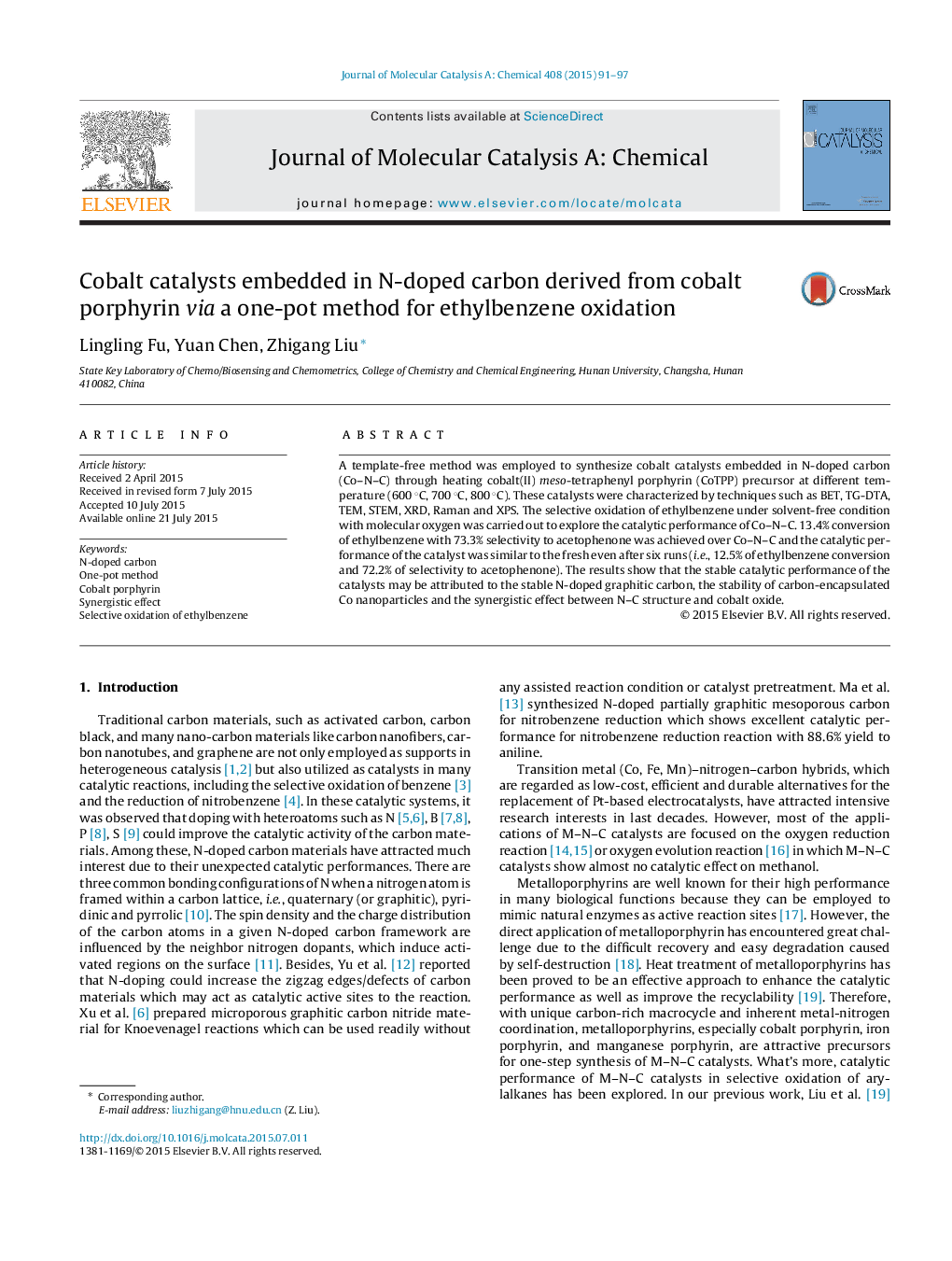| Article ID | Journal | Published Year | Pages | File Type |
|---|---|---|---|---|
| 64864 | Journal of Molecular Catalysis A: Chemical | 2015 | 7 Pages |
•Cobalt catalysts embedded in N-doped carbon.•The synthesis of the catalysts through heating cobalt(II) meso-tetraphenyl porphyrin.•A one-pot method instead of impregnation method.•The synergistic effect between N–C structure and cobalt oxide.
A template-free method was employed to synthesize cobalt catalysts embedded in N-doped carbon (Co–N–C) through heating cobalt(II) meso-tetraphenyl porphyrin (CoTPP) precursor at different temperature (600 °C, 700 °C, 800 °C). These catalysts were characterized by techniques such as BET, TG-DTA, TEM, STEM, XRD, Raman and XPS. The selective oxidation of ethylbenzene under solvent-free condition with molecular oxygen was carried out to explore the catalytic performance of Co–N–C. 13.4% conversion of ethylbenzene with 73.3% selectivity to acetophenone was achieved over Co–N–C and the catalytic performance of the catalyst was similar to the fresh even after six runs (i.e., 12.5% of ethylbenzene conversion and 72.2% of selectivity to acetophenone). The results show that the stable catalytic performance of the catalysts may be attributed to the stable N-doped graphitic carbon, the stability of carbon-encapsulated Co nanoparticles and the synergistic effect between N–C structure and cobalt oxide.
Graphical abstractFigure optionsDownload full-size imageDownload high-quality image (165 K)Download as PowerPoint slide
